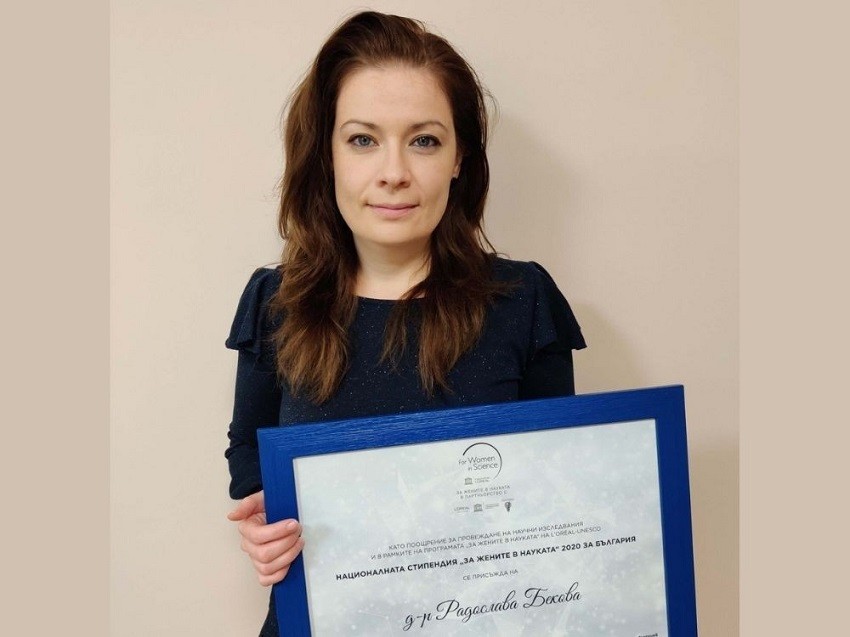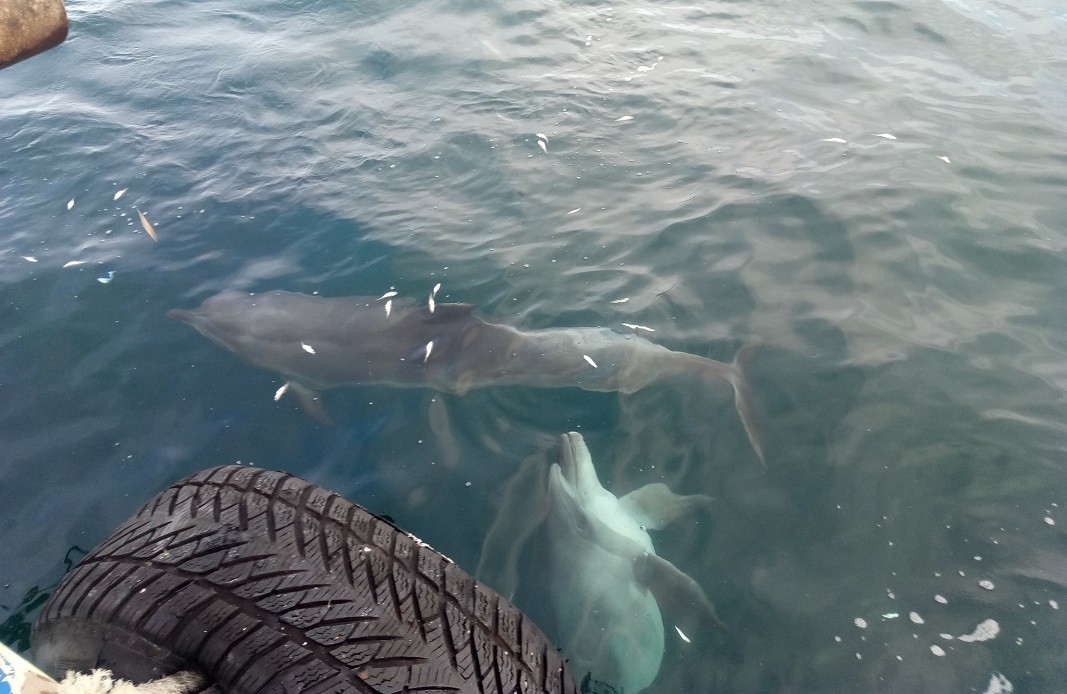Three young women will receive awards at a ceremony at the St. Kliment Ohridski University in Sofia today for excellence in natural sciences. For 12 years, the “For women in Science” programme has been promoting the scientific potential of women and supporting their dreams of changing the world through science.
One of the main aims of this UNESCO programme is to support women in science with EUR 5,000 national scholarships to develop their research activities in their countries. 33 scientists have received the award so far. One of them is Radoslava Bekova from the Bulgarian Academy for Sciences’ Institute for Oceanology for her project connected with the marine litter along the Black Sea coast.
“It is one of the most prestigious science awards in this country,” she says. “The scholarship came at a good point in my professional development and it helped me buy a certain kind of equipment I needed and take part in international conferences which is an expensive thing and Bulgarian scientists usually are barely able to afford the participation fees. This award has afforded me independence in my career development, it was something I very much wanted.”

Radoslava Bekova is holder of two more prizes for achievements in climate change, risks and natural resources, she has co-authored 23 scientific publications and has presented numerous scientific reports at national and international forums. And even though she is successful, the young scientist says that it is more difficult for women to develop in the field of science, that there is no equality yet, and that in her own field, for example, a man would be preferred to a woman because women are regarded as the weaker sex.
“Women are often mothers as well, and we have a great many personal things to take care of,” Radoslava Bekova says. “Maternity leave sets us back two years in our career development, and that is a very long time when it comes to science. There is a gender pay gap – of course, with men earning more, and I am not talking about salaries, I am talking about funding under different projects and research work.”
As to the scientific research work in the conservation of biological resources, their habitats and the ecological status assessment and evaluation of the marine and coastal environment, Radoslava Bekova says that after two years of Covid-19 pandemic, the monitoring of beaches and dunes has been reinstated, and that, unfortunately, littering there, most of all with plastics has increased.
Are scientists studying the pollution of the Black Sea as a result of the war in Ukraine?

“There has been no official monitoring of the consequences but it is inevitable,” Radoslava Bekova says. “Not in the least because of the increased mortality of dolphins though it cannot be said with any amount of certainty whether it is the result of the war or of some kind of pandemic that is connected with the rise in the average annual temperature of the Black Sea. Chemical tests are yet to be conducted to determine this because a war has a multitude of negative effects on the environment, be it air or sea. So, there are certain to be some kind of consequences.”

Interview by Mariela Dimitrova, Radio Varna, BNR
Compiled and edited by Diana Tsankova
Love blooms with renewed vigour every year on 14 February! Valentine's Day is increasingly being celebrated in Bulgaria as a holiday that inspires lovers to share beautiful moments together. Traditions include the exchange of cards, gifts and romantic..
From February 14 to 16, an event under the motto "Love and Wine" will allow Sofia residents and guests of the city to combine the Bulgarian holiday of wine Trifon Zarezan with Valentine's Day. It will be held on the pedestrian zone..
World Radio Day - 13 February, this year is dedicated to climate change. The choice is no coincidence—2025 has been identified by the Paris Agreement as a crucial year for humanity to achieve its long-term goal of limiting global warming to a maximum of..
Easter 2020 went down in history with two things. The first was the state of emergency, introduced due to the Covid-19 pandemic that..
152 years after Bulgaria lost its beloved son and advocate for a free, independent and tolerant state – Vasil Levski, his personality continues to excite..
152 years after the death of the Apostle of Freedom, the personality of Vasil Levski continues to excite Bulgarians, regardless of whether they are in the..

+359 2 9336 661
